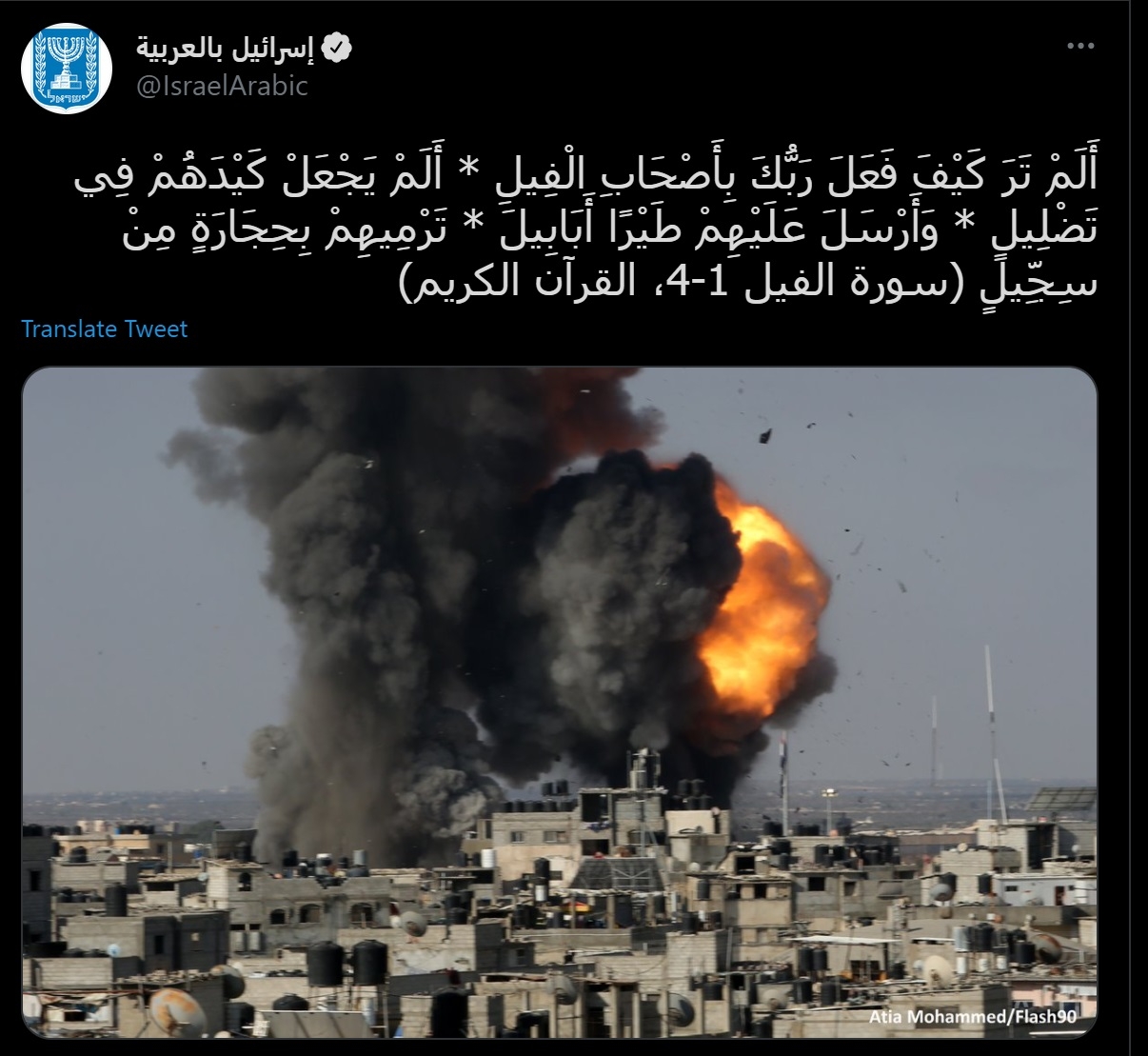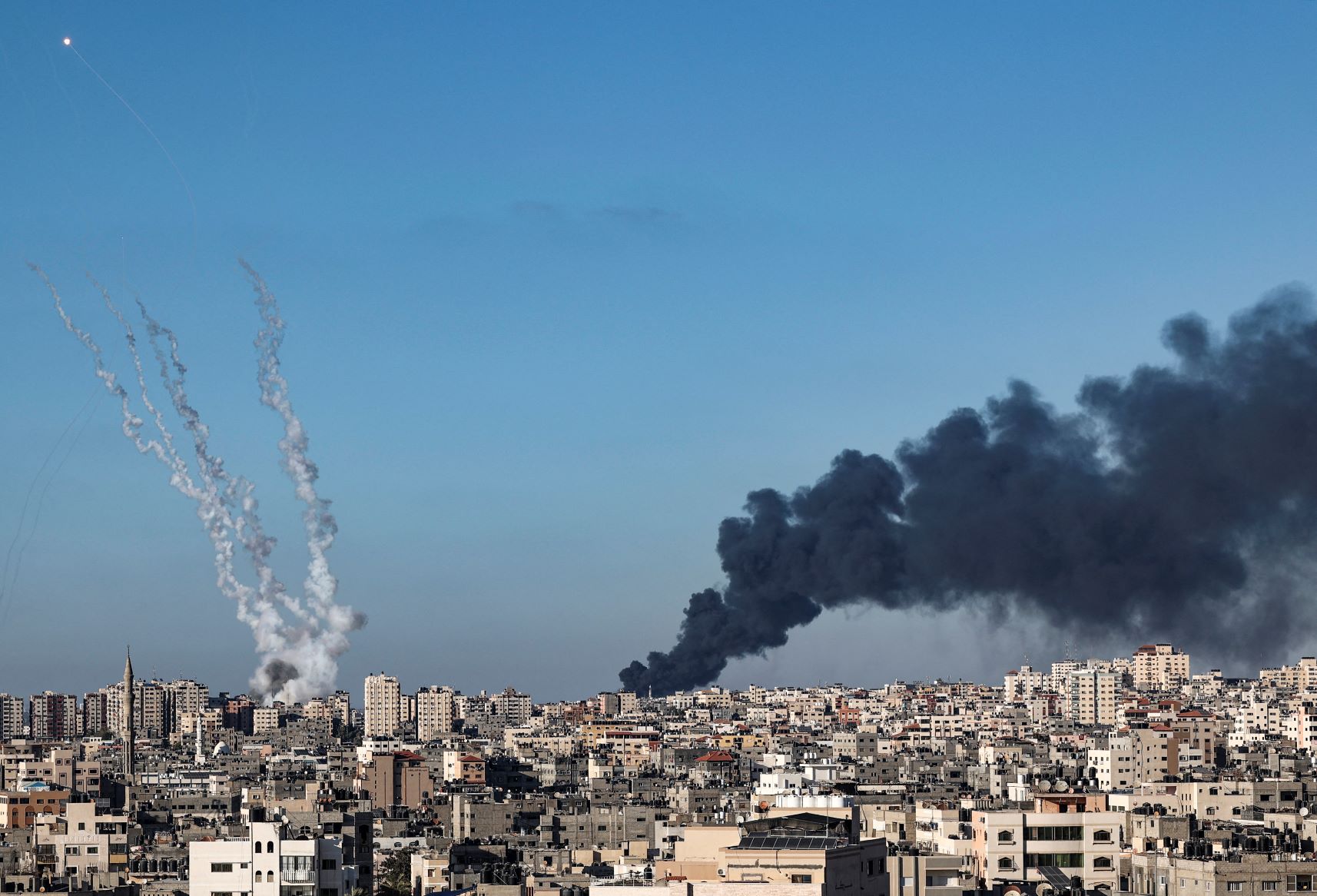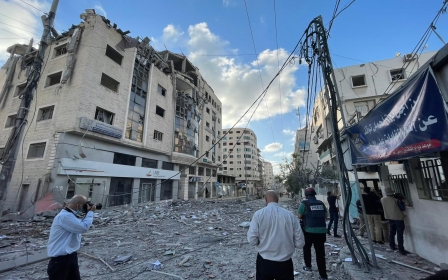Israel use of Quran verses to justify Gaza bombardment sparks anger

Muslims are reacting angrily to a post by Israel's official Arabic language account on Twitter, after it shared verses from the Quran seemingly justifying its bombing of the besieged Gaza Strip.
The tweet shared on Tuesday morning included verses from the chapter (or surah) known as 'the elephant', alongside a photo of a plume of smoke rising out of a building after an Israeli air strike.
In Islamic tradition, Surah al-Fil (the elephant) describes a pre-Islamic episode in Arabian history where an army made up of war elephants marches on the holy city of Mecca, only to be defeated by flocks of birds, which drop stones on the advancing army.
In a follow-up post in the same Twitter thread, the account says: "This is a reminder of God’s ability to support those who are righteous over falsehood, especially since Hamas is the arm of Iran that seeks to ignite the region. The IDF targets Hamas terrorist targets in Gaza."
A reasonable inference would therefore be that the Israeli military is comparing itself to the birds, which rescued Mecca in the Quranic account, from the war elephants, which in this case refers to Hamas.
New MEE newsletter: Jerusalem Dispatch
Sign up to get the latest insights and analysis on Israel-Palestine, alongside Turkey Unpacked and other MEE newsletters
When Middle East Eye asked the Israeli foreign ministry, which runs the Twitter account, what the intended message was and whether it was concerned the tweet was offensive, a spokesman declined to comment.
Bombing campaign
Israel's bombing campaign, which started on 10 May, has at the time of publication killed at least 213 Palestinians in the besieged territory, of which 61 are children and 36 are women.
Given that context, the Arabic language tweet drew angry reactions from users on Twitter, who saw it as a taunt and not in keeping with the facts on the ground: namely that, in their eyes, the Israeli military is considered the aggressor.
One user responding to the tweet mockingly asked: "And you are the people of righteousness?"
While another responded: "Nothing could possibly be more vile, more inhumane, than Israel’s Arabic Twitter page using a Quran verse to mock the bombings they’re conducting on Gaza. Our holy book’s verses are not something you use for your sick and twisted aesthetics."
The US publication Mondoweiss simply said: "This is sick."
Many Twitter users saw the post as a deliberate taunt given Gaza's overwhelmingly Muslim population, especially given ties between Israel and far-right anti-Muslim groups in the US.
In recent years, however, Israel has also courted Muslim states, most notably Gulf states, such as the UAE and Bahrain, which along with Morocco and Sudan normalised relations with the state in 2020.
Middle East Eye's Daniel Hilton contributed to this report.
This article is available in French on Middle East Eye French edition.
Middle East Eye delivers independent and unrivalled coverage and analysis of the Middle East, North Africa and beyond. To learn more about republishing this content and the associated fees, please fill out this form. More about MEE can be found here.





